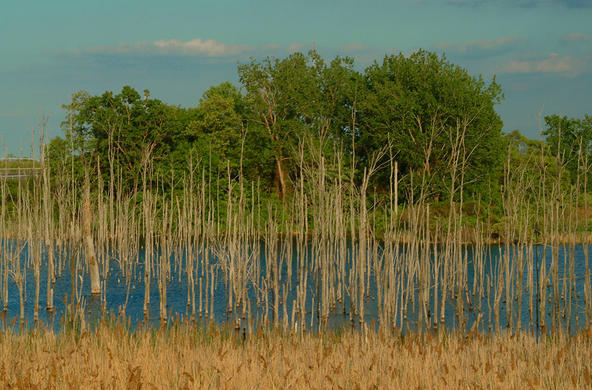
Every winter, ski resorts groom trails using heavy machines that do a great job flattening the snow, but also compact the soil underneath. In the offseason, the compacted soil makes it hard for vegetation to regrow, so a lot of money is invested in re-vegetation.
Without these efforts, steep slopes can erode in the rain, and a nice, smooth ski slope is replaced with jagged rocks underneath. Sometimes re-vegetation doesn’t work, because the soil is so smooth, firm, and steep that seeds and mulch simply wash away.
“Well the solution may be as simple as just walking cows up damaged ski slopes in spring after it’s rained on their way to the high Alpine pastures to feed.”
Clive Jones studies ecological engineering at the Cary Institute of Ecosystem Studies, and he reports on a novel solution being developed by colleagues in the French Alps.
“The cows leave hoof-prints. Hoof-prints trap seeds. They trap mulch. They trap rainwater. And the rate with which these slopes re-vegetate is much much faster. So it’s a really nice example of how to put some of nature’s engineers to do useful work for humans.”
Using cows to help restore the ski slopes is a great example of ecological engineering. It’s cost effective and works better than other approaches. Everyone wins, including the cows who enjoy browsing on alpine plants, the resort owners, and of course the skiers who enjoy fast trails the following winter.





